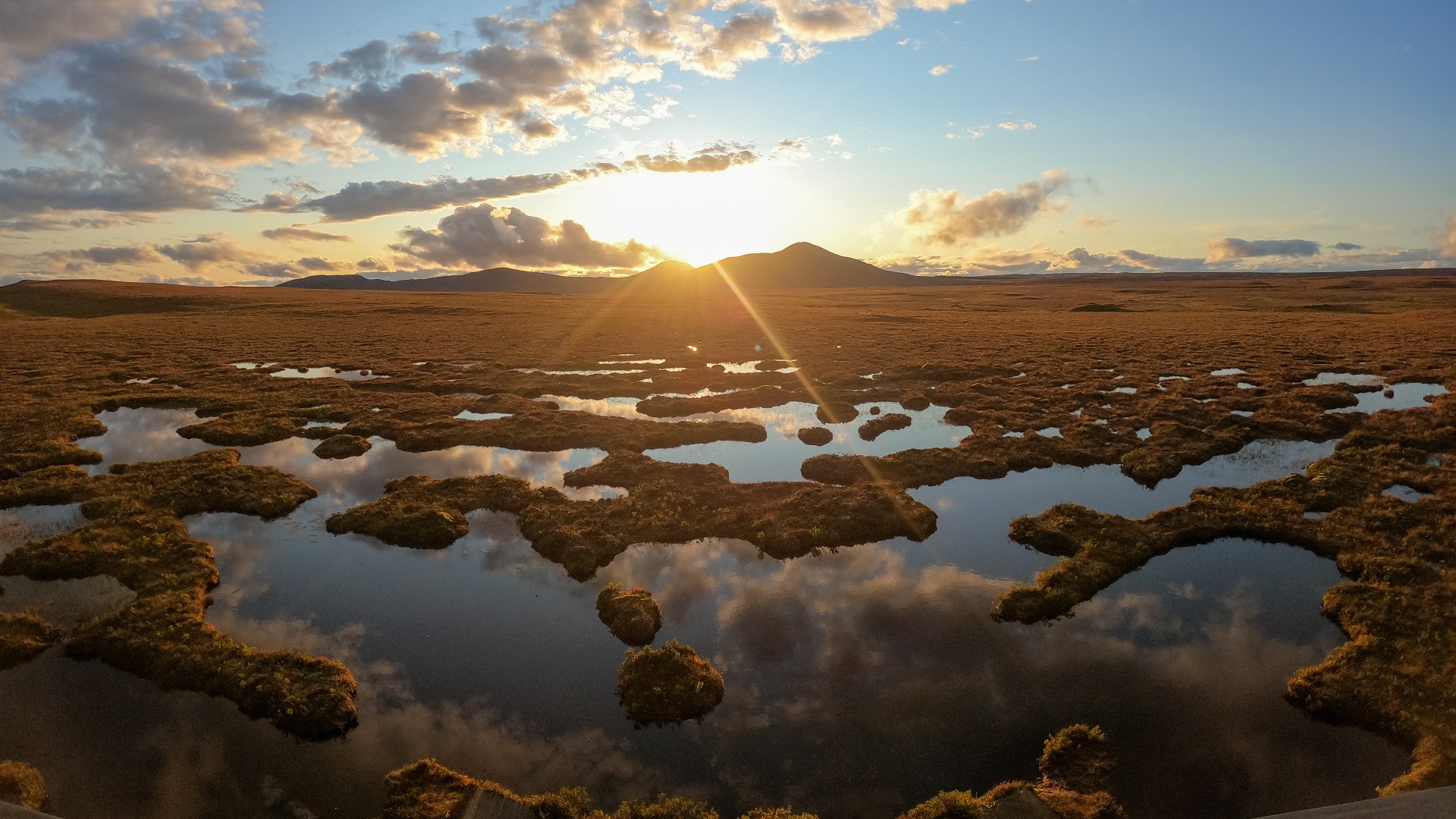Only 35 days until spring! And indeed, the garden centres are also getting ready with garden compost promotions of all kinds, but … today we will look at how garden compost potentially contributes to the destruction of valuable ecosystems and to climate change.
Traditional garden compost consists largely of peat. Peat is a substrate with an excellent consistency that holds a lot of moisture and nutrients and is also cheap. Because of its low pH, it is also ideal for growing acid-loving plants such as heather and berries (blueberries, raspberries, strawberries, etc.).
But what is peat?
Peat is formed in boggy peatlands from dead plant remains that, over the course of hundreds of years, form layer upon layer of thick peat. On average, such a peat layer grows by 1 mm per year, or in other words, when we dig up 1 metre of peat, we are excavating back about 1.000 years. Some peat bogs go up to 12 metres in depth, which basically means that they date back to the last Ice Age.
Besides being valuable ecological systems, peatlands are also an amazing carbon sink. In fact, they capture carbon from the atmosphere and lock it away in the accumulating plant material. And they continue to do so indefinitely. No other habitat on earth manages to do this and although peatlands cover less than 3% of the world’s surface, they store an estimated 30% of carbon. This makes peatlands a vital carbon store for the entire world.

And why should we care as gardeners?
60% of all peat that is mined is used in our bags of garden compost. Peatlands are drained before they are mined, releasing their historic storage of carbon. So when peat is mined for our gardens, a CO2 bomb is in fact released, which ultimately contributes to global warming. With peatlands alone storing twice as much as all the world’s forests, it makes sense to use them in the fight against climate change. For instance, damaged peatlands in the UK release nearly 3.7 million tonnes of CO2 per year, equivalent to the average emissions of 660,000 UK households.
Furthermore, peatlands are valuable as a buffer against flooding and as a support for biodiversity. As these are the three climate issues that predominantly concern us today, the UK decided to ban the sale of peat-based potting soil by 2024.
“A layer of peat measuring just 15 centimetres contains as much carbon as a tropical rainforest. One and a half metres of peat therefore equals ten tropical forests!”
Hans Joosten, Professor of Peatland Studies and Palaeoecology, University of Greifswald
What can you do?
- You can contribute to the fight against global warming simply by looking carefully at the composition of your garden compost when you buy it. Choose ‘peat-free’ garden compost
- I noticed that garden centres do not pay much attention to ‘peat-free’ garden compost, so systematically ask the question in every garden centre, the more demand there is, the better the supply can be increased.
- Avoid acid-loving plants when choosing the plants for your garden
- Write to your local council and explain that a change in procurement policy, for example, is part of a climate strategy
- Make your own peat-free compost with a mix of well-rotted leaf mould, garden compost, vermiculite and garden soil (see also What is Peat Moss / Alternatives to Peat – BBC Gardeners World Magazine)
Sources:
- 23 February 2021, Potgrond zonder turf?, Velt vzw, via Potgrond zonder turf? | Velt
- 1 October 2021, Alternatives to peat, BBC Gardeners’ World Magazine, via What is Peat Moss / Alternatives to Peat – BBC Gardeners World Magazine
- 17 May 2021, Arit visits a peat bog, BBC Gardeners’ World Magazine, 8 minute video via BBC Two – Gardeners’ World, 2021, Episode 9, Arit visits a peat bog
- Abts H., 2021, De toekomst begint nu en je kan er deel van zijn, NPOB-campagne 20 jaar verder, Natuur en Landschap, tijdschrift Natuurpunt Oost-Brabant
